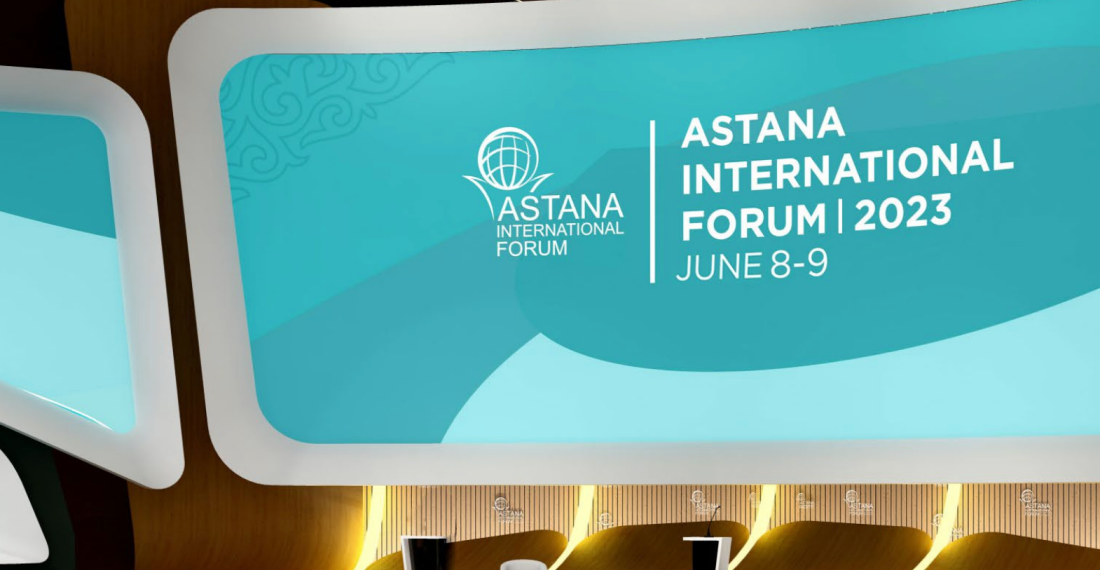The first Astana International Forum (AIF) is taking place in Kazakhstan on Thursday and Friday (8-9 June).
An initiative of the Kazakh President Kassym-Jomart Tokayev, the Astana International Forum writes that it will "serve as a platform for high-level delegates from foreign governments, international organizations, businesses and academic circles to engage in dialogue and seek solutions to problems such as climate change, food shortages and energy security".
Discussions over the two days will focus on four key areas: foreign policy and international security, international development and sustainability, energy and climate change, and economy and finance.
Over 1,000 people will participate in the conference, which is running under the theme "Tackling Challenges Through Dialogue: Towards Cooperation, Development & Progress". There will be several keynote speeches and over 40 panel sessions, discussions, and side events. The full agenda of the Astana International Forum can be accessed here.
Kazakh President, Kyrgyz President, and Emir of Qatar take centre stage at plenary session
In his address at the opening plenary session of the AIF, President Tokayev described the current era as "a period of unprecedented geopolitical tensions" characterised by the "process of destroying the very foundation of the world order that has been built since the founding of the United Nations."
He added that the AIF is "unique because it offers a platform for global middle powers to discuss their views and positions on the issues of today and to put forward their own solutions to these issues."
President Tokayev was joined on stage at the plenary session of the AIF by Emir of Qatar Sheikh Tamim Bin Hamad Al Thani, as well as Kyrgyz President Sadyr Japarov, Chairwoman of the Presidency of Bosnia and Herzegovina Željka Cvijanović, Director-General of the World Trade Organization, Ngozi Okonjo-Iweala, Managing Director of the International Monetary Fund, Kristalina Georgieva.
Meanwhile, it was also announced on the sidelines of the AIF that Kazakhstan is ready to increase exports to Qatar in about 60 types of products worth $250 million. The Astana Times reports that, in a meeting of the two countries' leaders, they discussed "the prospects for implementing joint projects in the oil and gas, mining and metallurgical, agricultural industries, medicine, and the financial sector with investors", as well as reviewing "mutually beneficial cooperation through international organizations".
Record foreign direct investment in Kazakhstan
The decline of Russia in Central Asia as a result of its ongoing full-scale invasion of Ukraine has propelled the region into a new geopolitical reality. Especially on trade, difficulties trading via Russia as a result of sanctions have given Central Asia a renewed, critical position in facilitating east-west trade. To that end, Central Asian connectivity is also high on the agenda at the AIF.
International interest in the region is rapidly growing, especially from Europe, China, and the Middle East. Yesterday, at a US-Kazakhstan investment roundtable, Kazakh Minister of National Economy Alibek Kuantyrov said that last year Kazakhstan attracted a record amount of foreign direct investment, at $28 billion.






